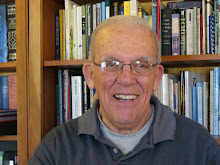
FIFTY DAYS OF EASTER
The Resurrection of the Lord is so important and so rich in meaning that one day does not do it justice. The Feast not only has an Octave, which is really a continuation of the Solemnity of Easter, but is celebrated through the Fifty Days to the Feast of Pentecost.
The Gospels for the “Fifty Days of Easter” tell us who the Lord is. In the first readings, from the Acts of the Apostles, we are reminded of the working of the Lord in His Church through the Holy Spirit. There are many windows through which we may look at these readings. Like the mystery they make present their meaning is never quite exhausted.
The simple question which is asked and hopefully in some small way answered is: “What does the Lord tell us about Himself?” These mediations will in an inadequate way try to answer this question and in so doing to continue the celebration of Easter.
Easter cannot be relegated to just one day. It is basically a celebration of our lives and the “Fifty Days” help to impress on us the importance of this Celebration.
The meditations will focus on the Gospels. It is not because the first readings do not contain important lessons. The history of the Church, of how it grew within a very short period of time from just a few people gathered on Mt. Sion to a religion which touched the known world, is indeed exciting. The Gospels, however, are the words of the Lord and permit us to see Him more clearly.
The Octave of Easter

Monday of the Octave of Easter (Acts 2:14,22-32; Matt.28: 8-15)…The first word He speaks after the Resurrection is “peace”. This is the Easter gift. Peace, order, the way things should be. With this greeting He is saying that His task is finished, that all has been reconciled. All of creation has been brought back into the order that first existed, things are the way they should be. That is what has happened because of the Resurrection. In the “peace” is also the “not yet”. Radically all things have been brought together, but this still has to be accomplished. The task of Easter is to become and help the world become what the Resurrection has made it.
Tuesday of the Octave of Easter (Acts 2:36-41; John 20:11-18) It is so easy to miss the Lord as we walk through the “garden” of our lives. We see Him in so many different ways; in a beautiful sunset, in the smile of a child, in the face of one crying out to be recognized, in the poor, the sick. We call Him by a different name, the “gardener”. Through all the noise, the “not seeing” a voice comes through. It calls gently, like a summer’s breeze, we have to be attentive or we miss it. It calls out our name. He knows who we are. We close our eyes and hear the voice, we know the Resurrection is not distant but is now.
Wednesday of the Octave of Easter (Acts 3:1-10; Luke 24:13-35) Going back to the past is so easy. That is what the two men of today’s Gospel were doing. The newness of the future was clouded. They had dreamed of a different future. The Cross had not been in their dreams. They had to go back to the past, where things were secure. Along the way to the past, the future met them. He opened their eyes. They let go of the past. Their dreams of the future were replaced by the Future, the Lord.
Thursday of the Octave of Easter (Acts 3:11-26; Luke 24: 35-48) It is so difficult to see the Lord. He stands in front of us, we want to believe, but surely He would come to us in a more glorious way. We have to see, to touch, be assured. To live Easter, is to break loose from the restrictions of the material. We enter a new world. In entering the new world we see the present world through different eyes. We see that the present world has sin. It is separated from God. It has to be given Easter.
Friday of the Octave of Easter (Acts 4:1-12; John 21:1-14) Sometime in the deepest part of our hearts we may be asked to do something completely foolish. Peter throwing the net to the starboard was foolish. One just did not fish from that side of the boat. It was especially “foolish” after having caught nothing through the night. It was in doing this “foolish” thing that they could say “It is the Lord”. Easter asks us to make judgments not by the standards of the world, which are safe, logical, measurable but rather by the standards of God which are not safe, because we are not in control; are not logical, because they look at reality through the eyes of God; are not measurable because Easter works slowly.
Saturday of the Octave of Easter (Acts 4:13-21; Mark 16: 9-15) Easter is to be shared. The times we met the Lord in the garden of our lives, the times He walked with us along the way, the times He opened the future, the times He asked us to cast the net of our lives on the starboard side, all of these are not to be held onto selfishly but rather to be given to the world. The Lord wants everyone to be an Easter person.

No comments:
Post a Comment